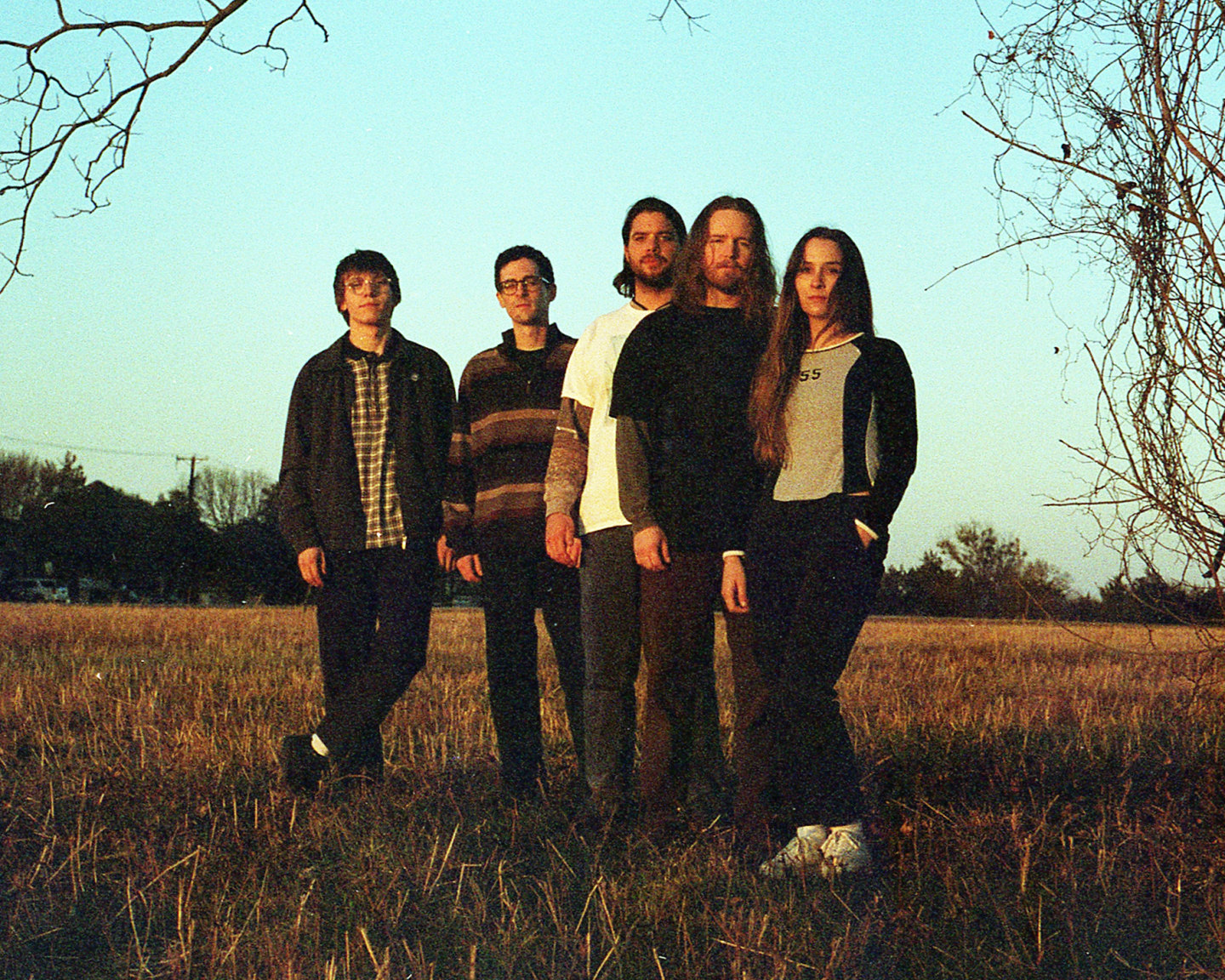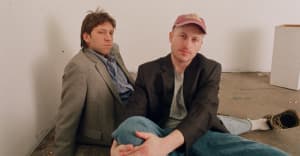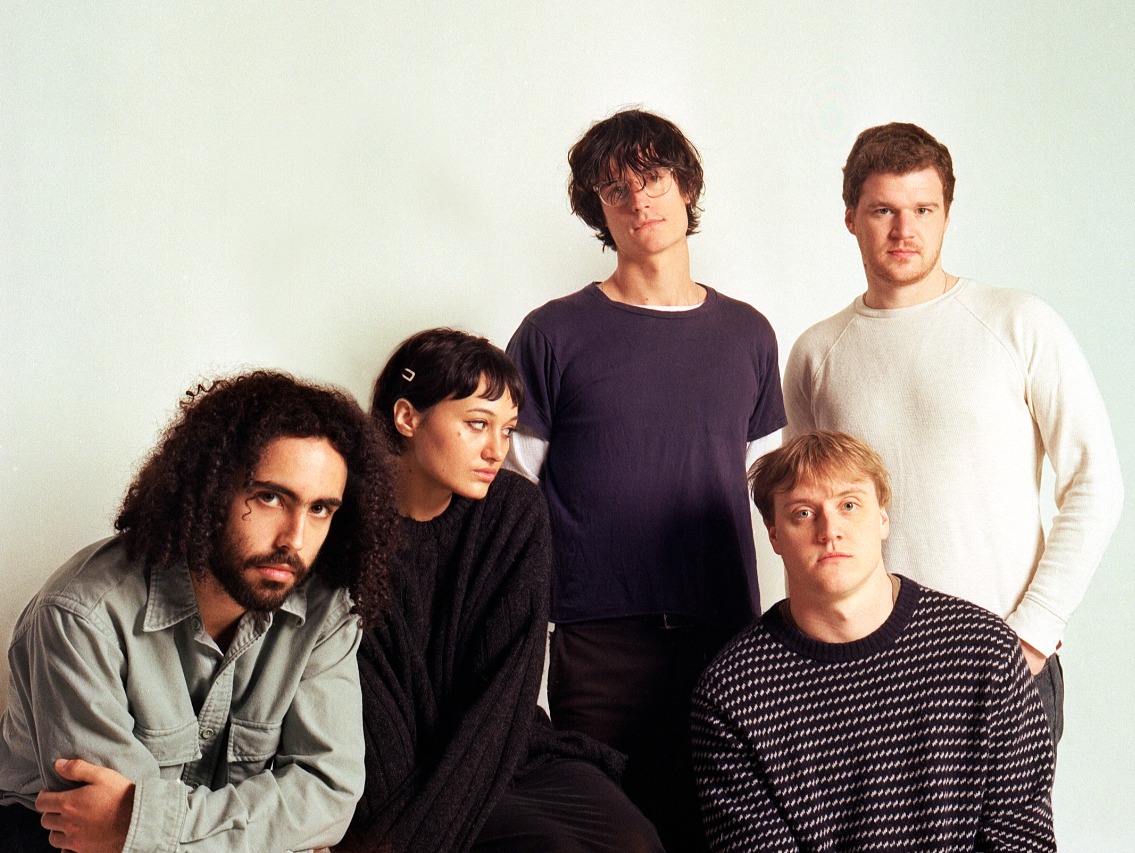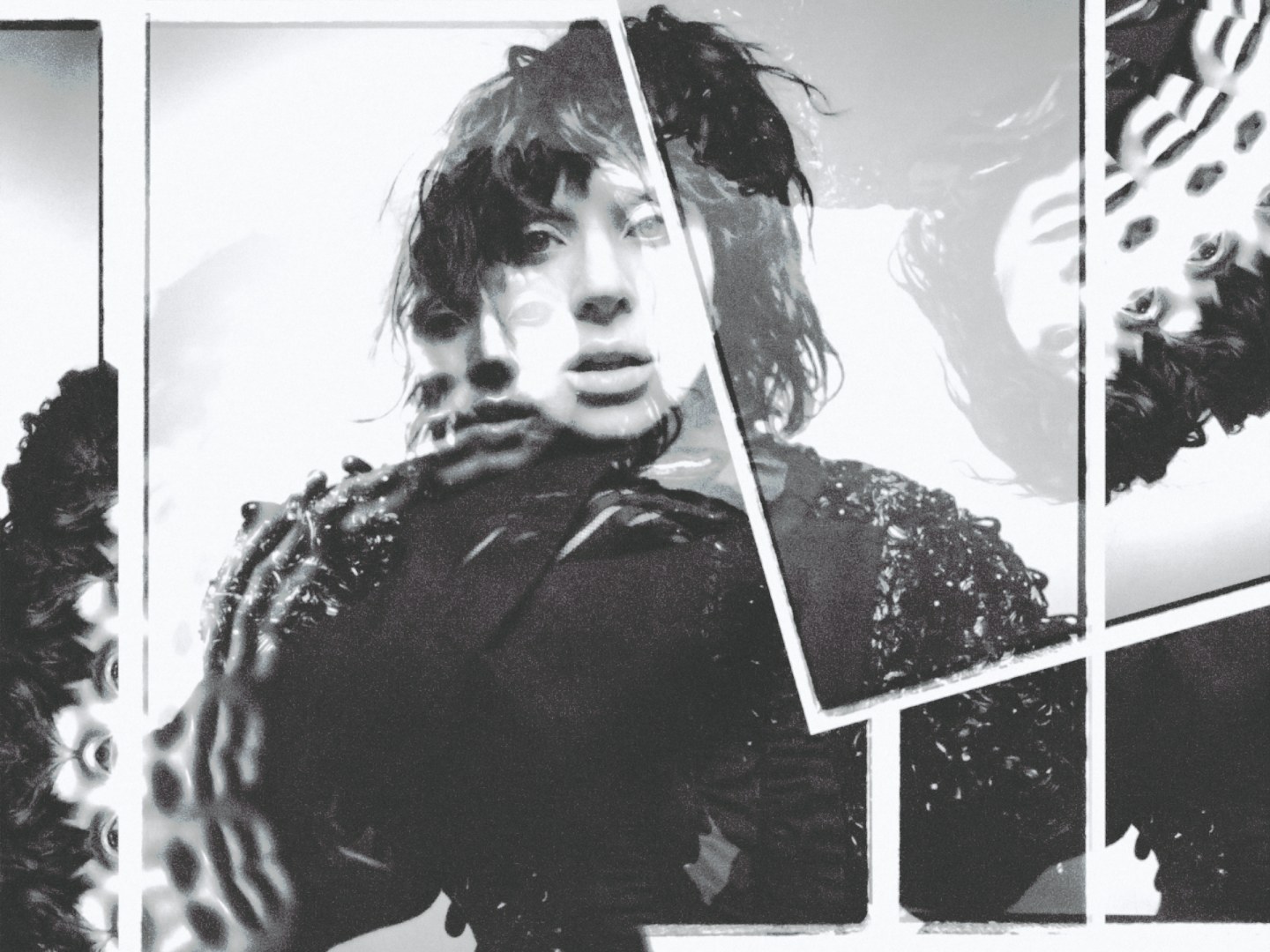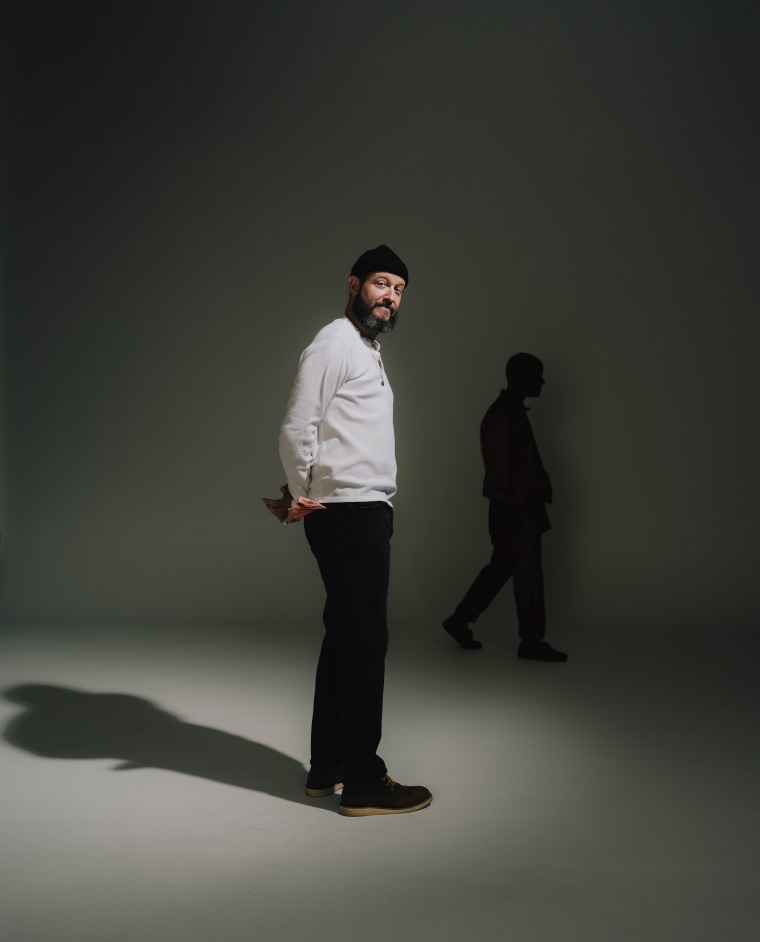Magic of the Sale”>
Teethe.
By Alex Montenegro
Texas band Teethe’s experimental, sometimes punishing slowcore asks the question: How do you soundtrack the end of the world? On the band’s latest full-length album, Magic of the Sale, whispered vocals, heavily layered textures, and sullen lyrics reject the current state of reality and embraces the unknown and nameless. It’s the perfect soundtrack to accompany the feeling of sweat sticking onto your skin during a brutal heatwave — the sprawling nature of the band’s songs have the feel of a never-ending summer’s day when time, and life, gets lost within the unrelenting, scorching sun.
“It’s this all-encompassing feeling of not being happy with the way things are and wanting to escape,” says Teethe founder Boone Patrello. Patrello, along with bandmates Madeline Dowd, Grahm Robinson, and Jordan Garrett, wrote the lyrics and instrumentals for their second record separately. When Patrello was tasked with weaving together the hodgepodge of abstract ideas and sounds together, he discovered that the group had aligned on the same thematic throughline: a steady, uncomfortable unease in the face of impending doom.
The slow ramble of “Hate Goodbyes,” featuring Xandy Chelmis and MJ Lenderman of Wednesday and Charlie Martin of Hovvdy, is an unpleasant goodbye letter to someone you still want in your life; “Anywhere” is a grim ode to escapism, a yearning to leave for something better, if it even exists. But amid the melancholy downtempo that makes up the majority of the record, the upbeat, noisy “Holy Water” sticks out as a beam of hope, at least instrumentally: lyrically, the song posits the idea that we took our childhood naïvete and innocence — as well as ignorance — for granted. Still, for Teethe, any form of escapism is the ideal form of solace, especially through music.
The FADER caught up with the band a few weeks before the release of Magic of the Sale to talk about the nature of the record, how they plan to bring the album’s rich textures to life, and writing as the world falls apart.
The FADER: Boone, when you’re producing and putting these demos together, do you consult with the rest of the band about the through lines you are discovering?
Patrello: I think it was more musically based first, just the way that all the songs sounded, and trying to make them sound sonically cohesive rather than thinking about themes. But then once we knew which songs were gonna be on the record, I definitely looked at all the lyrics and tried to piece it together. I think you would have to be really intimately involved with the record to really understand that there could be a beginning, middle and end. I would say it wasn’t until the songs were finished, and we knew what songs were on the record, that I was really looking at the lyrics and and the themes and trying to think about what the songs meant.
Can you talk about the title?
Patrello: It just kind of popped into my head. It was a lyric first, the title track. It just sounded cool. It’s a strong phrase and you can attach any meaning you want to it. It’s vague enough to make you think. It has a presence.
Grahm Robinson: The word “magic” encompasses a lot of the feeling of the record, too. There’s so many layers and it just feels very immersive and I don’t know, magical, I guess.
You have Xandy Chelmis from Wednesday and Charlie Martin from Hovvdy working on the record, two great musicians from two great bands.
Patrello: We were on tour in another band that we used to play in and Xandy had a house venue that we played at in 2019. We needed someone to play pedal steel, and he was the first person that came to mind, Charlie’s an old friend. I’ve known Charlie since I was a kid. I just hit him up to play on one song. He happened to be 30-40 minutes from me, so I just went over there and then we just spent two days working on the record and he played on it a bunch, I think like 8 songs total. There’s a couple other people too, but they’re all friends that we know through music and playing shows.
I love the textures across the album. I’m curious about “Holy Water.” I think that might be a little more optimistic than the rest of the album.
Madeline Dowd: The demo of that song was pretty chill. Then once I brought it to Boone and we started working on it, we had some heavier sounds that we wanted to produce it with. I think we just took the demo and turned it into a totally different song. Lyrically, I’m not saying it feels nostalgic, but the lyrics themselves are nostalgic for childhood. I think it’s just being nostalgic for something like that. It’s maybe a little lighter than like the rest of the record. Even though it is lighter, I feel like there’s kind of like two sides to the track, like being nostalgic for the way things used to be, or the way you were as a child before the world really comes into play, and you see how dark things can be. There’s a lightness, but there’s kind of a darkness to that track as well.
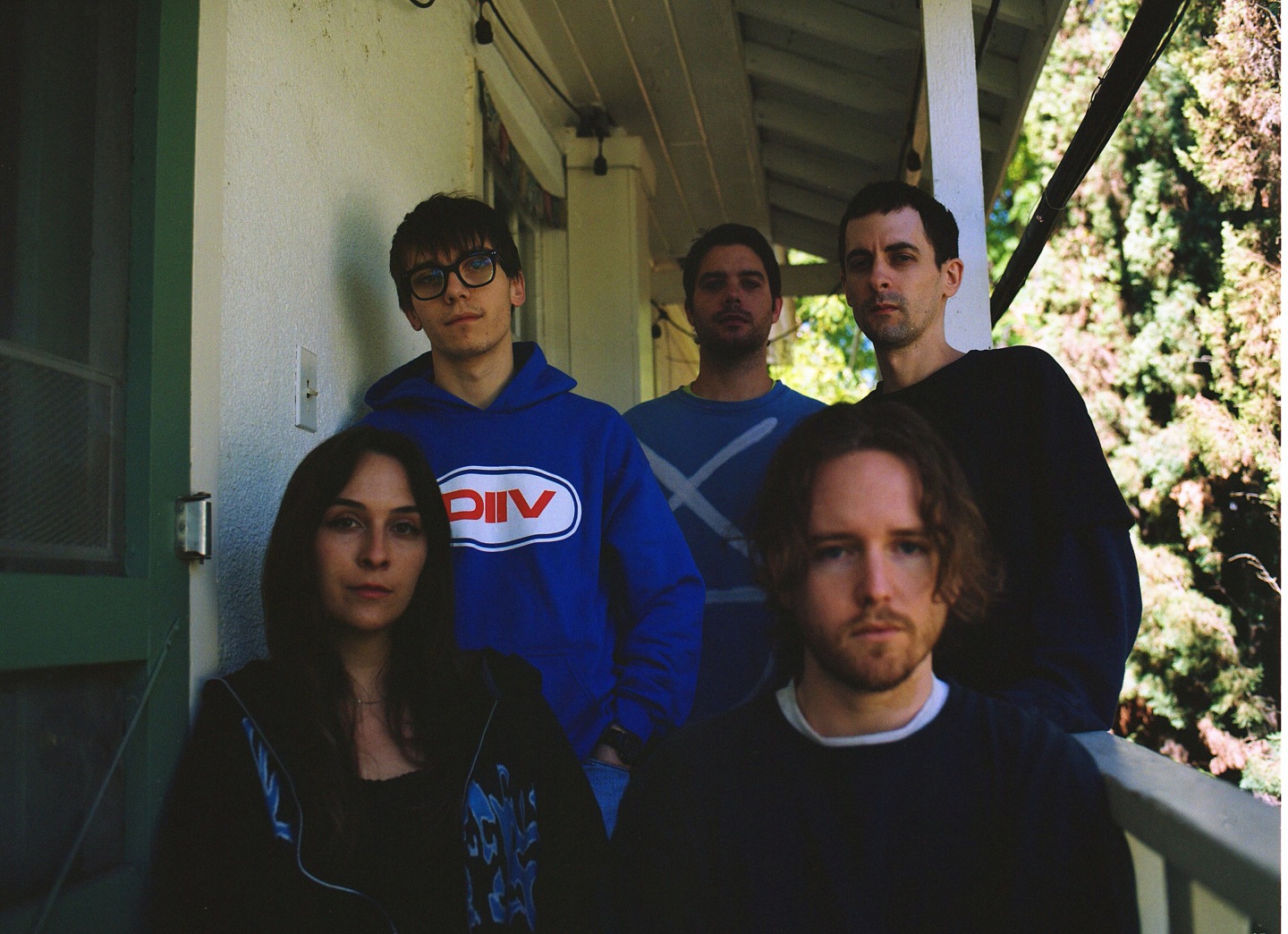 Magic of the Sale”>
Magic of the Sale”>
Teethe.
By Alex Montenegro
“Anywhere” is another song that evokes that retreat from reality. It’s like a wilful regression into a state of mind that was a little more naive and less attuned to the world at large..
Robinson: It’s kind of about retracting inward. Just being so fed up with the outside world that you retract inwards as much as possible. You’re trying to escape from your own reality.
Do you find yourself using a lot of physical imagery just in songwriting?
Robinson: With this record I tried to think of a moment or an object that evokes an emotion and then use it as a metaphor for feelings or emotions.
I love the textures across the album so much. I’m curious about how you’re translating this live on stage.
Patrello: I’m also wondering the same thing. We haven’t really figured it out yet. We’re a five-piece, just three guitars. I have bought some pedals that I’m thinking maybe could be good for trying to get some of the weirder stuff. It would be really cool to do a Broken Social Scene and have 20 people on stage and have strings and winds and a pedal steel and piano player. But that would be hemorrhaging money. Ideally, we could have maybe one string player, pedal steel, piano player.
If there was no budget and you could have all the money in the world to invest in your ideal touring setup, what would it be?
Jordan Garrett: We’d have a huge van. We’d have a hibachi grill and we have multiple floors and there would be an elevator.
Patrello: It would be awesome to have like a couple of string players, a couple wind players like pedal steel, piano player, someone even doing triggering sounds, weird texture sounds and stuff like that, and even a couple of backup singers. A full choir.

